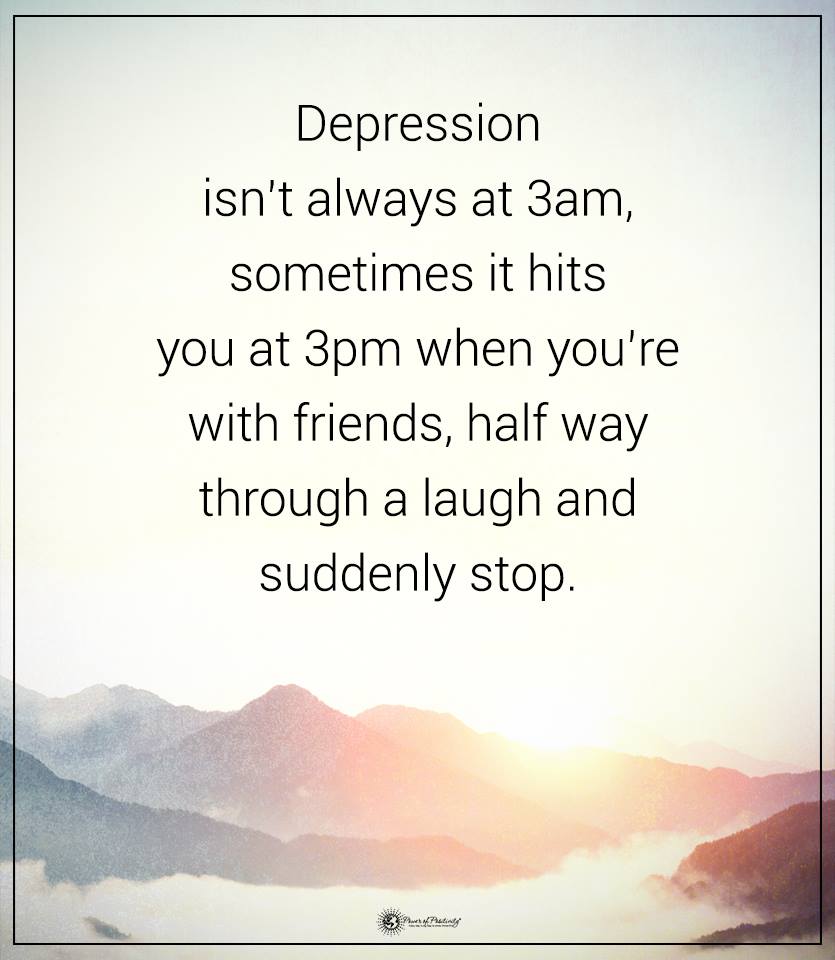Don’t hide your depressed feelings from the world.
Depression is a common but serious mood disorder that impacts millions of people around the world. Despite its prevalence, there’s still much stigma and misunderstanding. Opening up about being depressed is more than a single step towards personal healing. Instead, it creates a doorway that opens us up to greater awareness and support for everyone.
This article discusses the causes of depression and why we must talk about this important issue.
What Causes Depression?
Depression is a complex mental health condition that involves various factors contributing to its onset and progression. The exact cause of depression isn’t entirely understood, but it’s generally accepted that it results from a combination of genetic, biological, environmental, and psychological factors.
Here’s a closer look at some of the key elements that can cause the brain to experience depression:
Genetic Factors
Depression can run in families, suggesting that genetics can play a significant role. If you have a family history of depression, you may be at a higher risk of developing it yourself. However, having a family history does not guarantee that you will experience depression, as many other factors also contribute.
Neurotransmitter Imbalance
Neurotransmitters are chemicals in the brain that help regulate mood, emotions, and other functions. An imbalance in neurotransmitters like serotonin, dopamine, and norepinephrine is often associated with depression. These chemicals are responsible for transmitting signals in the brain, and an imbalance can disrupt communication pathways and lead to symptoms of depression.
Hormonal Changes
Changes in the body’s hormonal balance can trigger or contribute to depression. That can be particularly evident during significant life changes such as puberty, pregnancy, postpartum period, menopause, or thyroid problems. Stress can also affect hormone balance, which can lead to or exacerbate depression.
Brain Structure and Function
Research suggests that the structure and function of certain areas of the brain might be different in people with depression. For instance, the hippocampus, which is responsible for storing memories, tends to be smaller in some people with depression. Moreover, the frontal lobe of the brain, which is involved in managing emotions, can also function differently in those with depression.
Psychological and Social Factors
Psychological factors, including low self-esteem, being overly self-critical, or feeling helpless, can contribute to the development of depression. Similarly, environmental and social factors like exposure to violence, neglect, abuse, or poverty can increase the risk of depression. Chronic stress, significant life changes, and traumatic events are also known triggers.
Chronic Illnesses
Living with a chronic illness can lead to being depressed due in part to the stress and anxiety that chronic illness can cause. That is particularly true for conditions that involve pain, fatigue, or significant lifestyle changes.
Substance Abuse
Substance abuse can both contribute to and result from depression. Some people may use alcohol or drugs to cope with depressive symptoms, but substance abuse can exacerbate these symptoms and make depression more difficult to treat.
It’s important to understand that being depressed is more than sadness. Indeed, it is a multifaceted condition. No single cause applies to everyone. Often, it’s a combination of several factors that leads to the development of this disorder. Recognizing the complexity of these contributing factors is crucial in understanding and treating depression effectively. If you or someone you know is struggling with depression, seeking professional help is a critical step in managing and treating the condition.
10 Reasons to Talk About Your Depression
Here are ten compelling reasons to open up to others about your mental health struggles:
1 – Understanding Depression is the First Step to Overcoming It
Depression is more than just feeling sad. It’s a complex condition with emotional, physical, and mental symptoms. By opening up about depression, individuals can gain a deeper understanding of what they’re experiencing. This understanding is key to seeking appropriate treatment and starting the recovery path.
2 – Sharing About Depression Reduces the Stigma
Many people suffer from depressed thoughts in silence due to the stigma attached to mental health issues. When individuals share their experiences, it challenges misconceptions and stereotypes. This openness can foster a more accepting and supportive environment for everyone dealing with mental health challenges.
3 – Encourages Others to Seek Help for Their Own Depressed Feelings
When someone talks openly about their mental health, it can inspire others to do the same. Knowing you’re not alone is a powerful feeling. It can encourage those struggling silently to seek the help they need.
4 – Discussion of Depression Strengthens Relationships
Depression can be isolating, but opening up about it can strengthen bonds with friends and family. It helps loved ones understand what you’re going through and how they can support you. This shared understanding can deepen relationships and provide a valuable support network.
5 – Promotes Emotional Healing
Talking about your feelings is a therapeutic process. It allows individuals to express their emotions rather than bottling them up. This expression is crucial for emotional healing and managing those depressing thoughts.
6 – Increases Public Awareness
The more people talk about depression, the more awareness is raised. This increased awareness can lead to better resources, support systems, and possibly even policy changes that benefit those with mental health issues.
7 – Helps Identify Triggers and Patterns
Discussing depression with a therapist or a support group can help identify triggers and patterns in behavior that contribute to the condition. Understanding these triggers is crucial for managing symptoms and preventing relapses.
8 – Encourages a Supportive Community
When individuals open up about their struggles, it can build a community of people with similar experiences. This community can provide mutual support, understanding, and encouragement, which is invaluable during tough times.
9 – Discussion of Depression Brings Greater Self-Acceptance
Accepting that you have depression is a significant step towards recovery. Talking about it can be a part of the journey towards self-acceptance and understanding that depression doesn’t define who you are.
10 – Leads to Better Depression Symptom Coping Strategies
Sharing experiences with depression can expose individuals to different coping strategies and treatments. What works for one person might not work for another, so hearing about various approaches can be incredibly helpful.
Ten Easy Ways to Reduce Mild Depression
Here are some things that can help relieve your symptoms, especially if you have a mild form of the disease:
- Establish a Routine: Being depressed can strip away the structure of your life. Setting a gentle daily schedule can help you get back on track.
- Set Realistic Goals: Start with small goals and gradually build up to more significant tasks. This process can help you feel a sense of accomplishment as you achieve each small step.
- Exercise Regularly: Physical activity can boost mood-enhancing chemicals in the brain. Even light exercises like walking can make a difference.
- Eat Healthy: A balanced diet can impact your mood and energy. Focus on foods rich in omega-3 fatty acids and folic acid. Some studies suggest how these nutrients may help ease your symptoms.
- Get Adequate Sleep: Feeling depressed often involves sleep problems, so set up a restful environment and strive to get in your eight hours. Establish a set time for retiring to sleep and rising, ensuring consistency.
- Practice Mindfulness: Activities like meditation, yoga, or deep breathing can reduce stress and improve emotional well-being.
- Limit Alcohol and Avoid Drugs: These substances can worsen depression and interfere with the effectiveness of any treatment. Using them only masks your symptoms and can only lead to bigger problems with continued use.
- Do Things You Enjoy: Engaging in hobbies or activities you like can improve your mood and break the cycle of depression. So exercise, read, write in your journal, stream a feel-good movie, or make crafts. Whatever makes you feel good – do it!
- Stay Connected: Reach out to friends and family. Social connection is crucial in managing depressed thoughts and feelings. Sometimes, an empathetic ear can make you feel so much better.
- Write in a Journal: Expressing your thoughts and feelings in writing can provide an outlet and help you understand your emotions better.
Warning:
While these tips can provide relief, they are not a substitute for professional treatment. If you’re experiencing persistent symptoms of any mental illness or if you have thoughts of self-harm, it’s essential to seek medical help immediately. Call the National Lifeline by dialing 988 for immediate help.
Depression is a serious medical condition, and there are effective treatments available that can significantly improve your quality of life. Don’t hesitate to contact a healthcare provider for support and guidance.
Final Thoughts on Opening up About Your Depression
Opening up about mental health is a courageous and important step. It aids personal recovery and leads to a more informed and empathetic society. If you or someone you know is struggling with depression, remember that seeking help and talking about it are signs of strength, not weakness. Let’s break the silence and support each other through our journeys.
















 Community
Community

